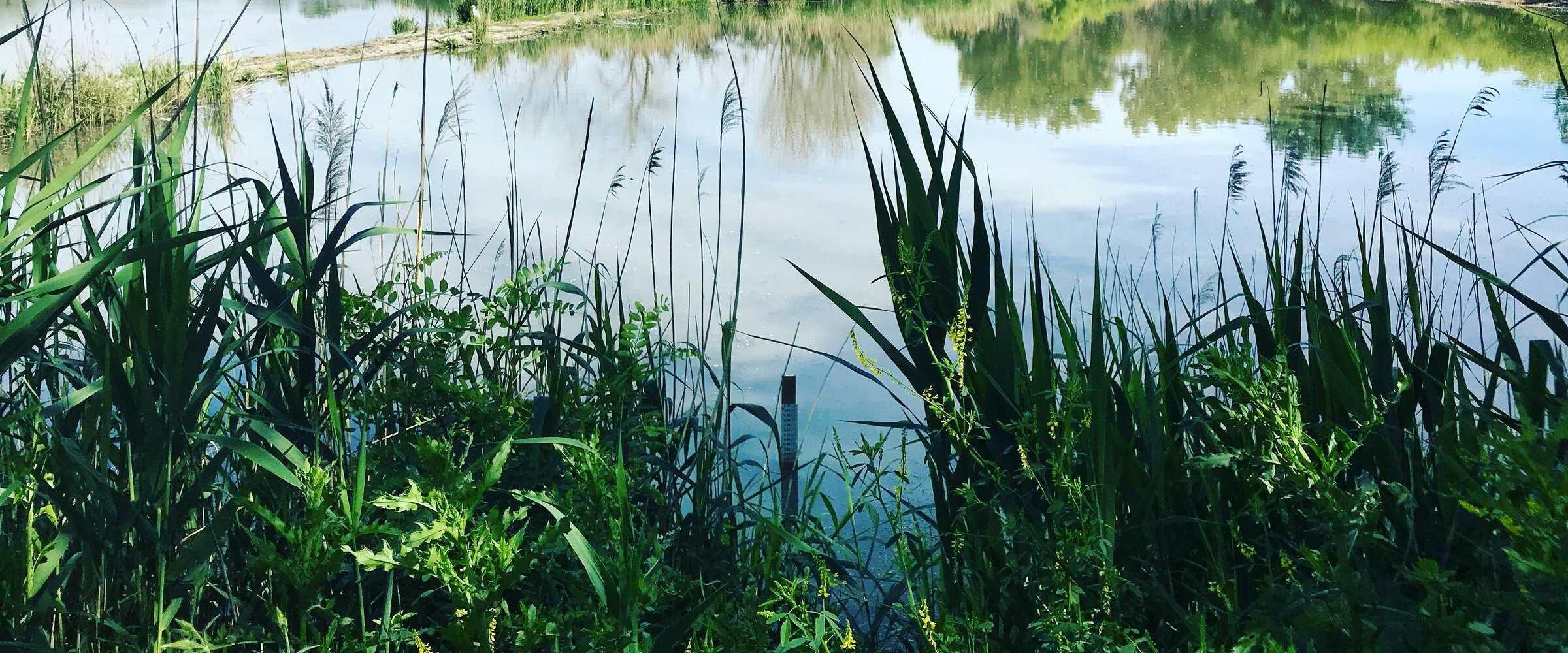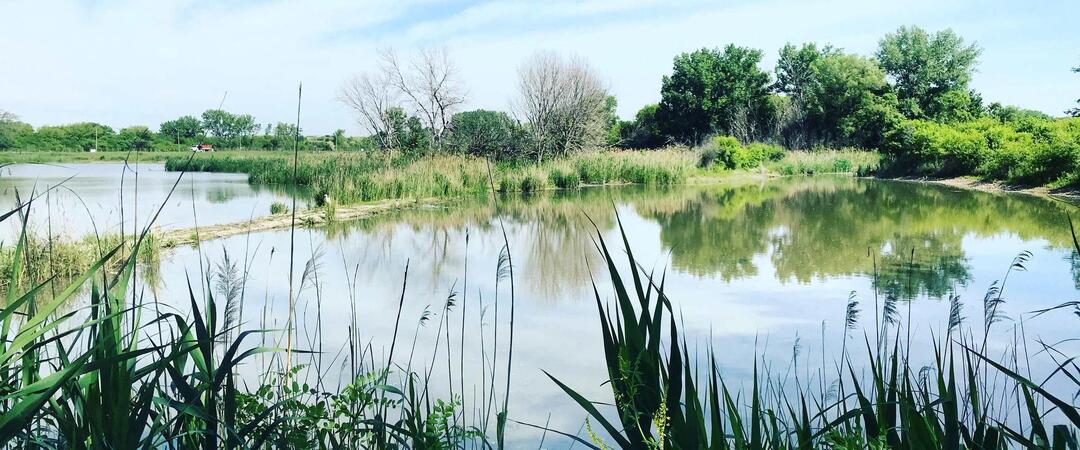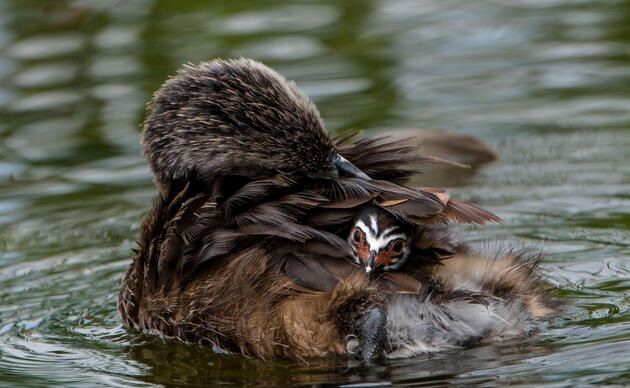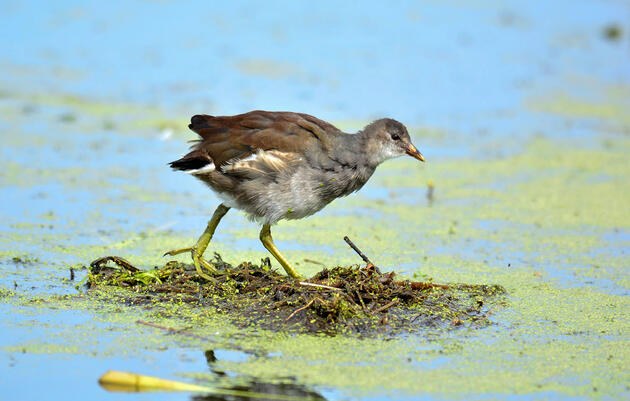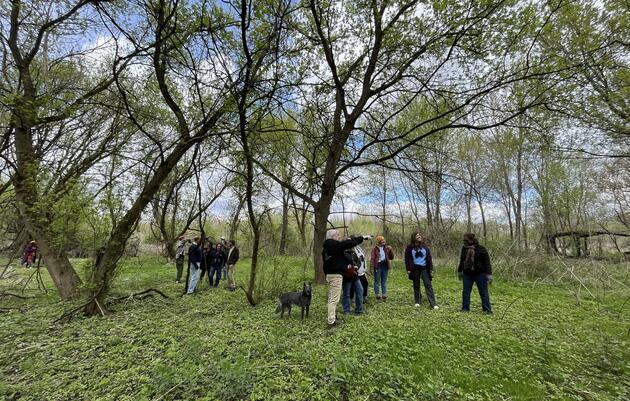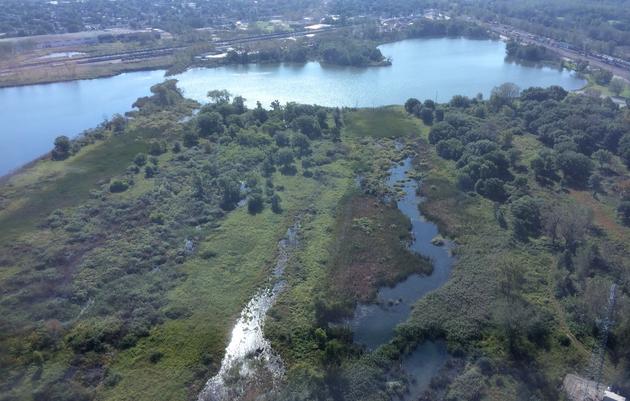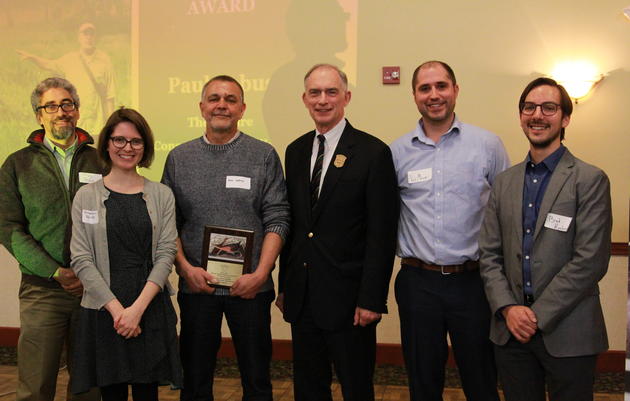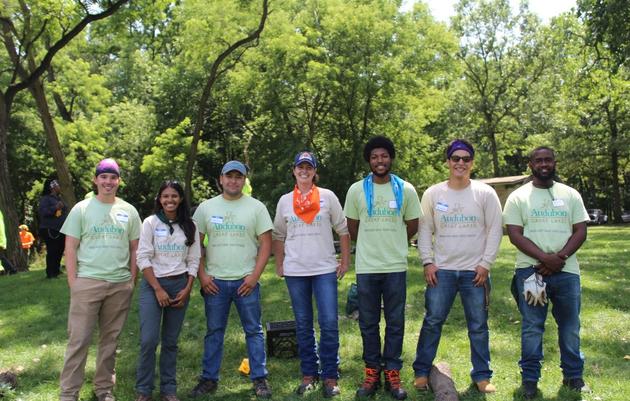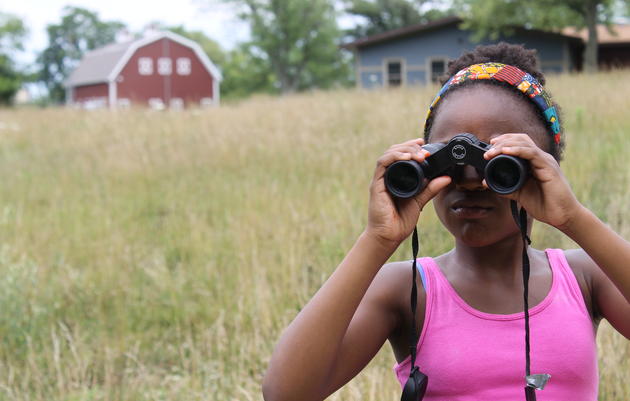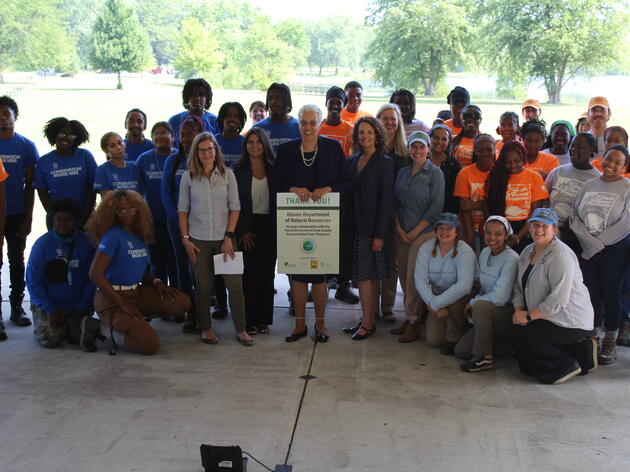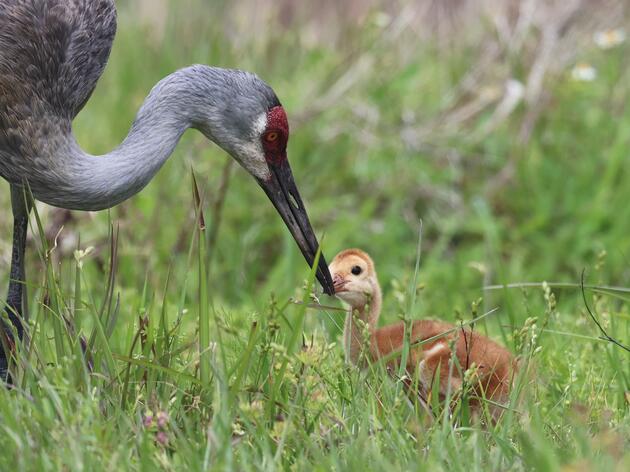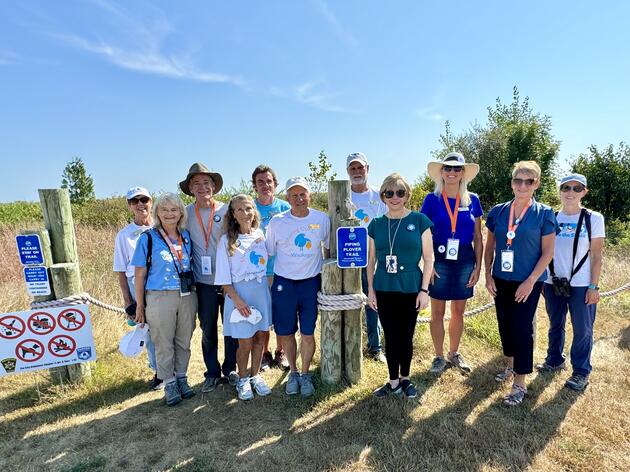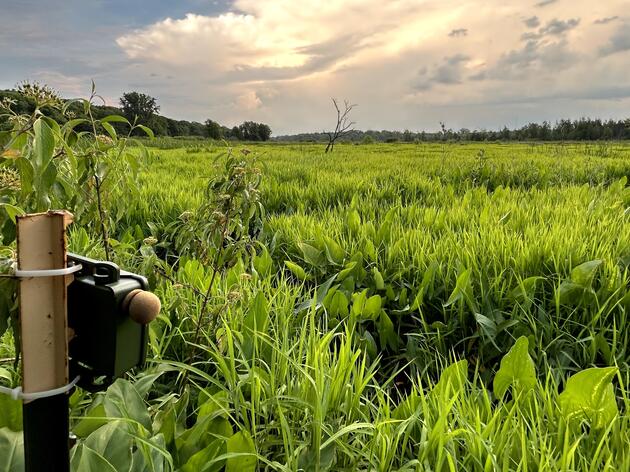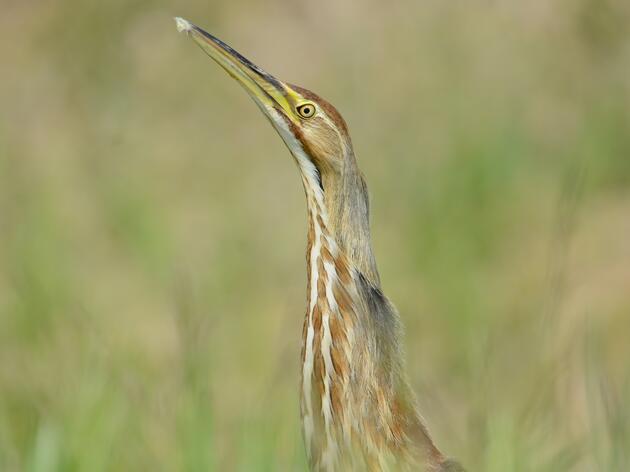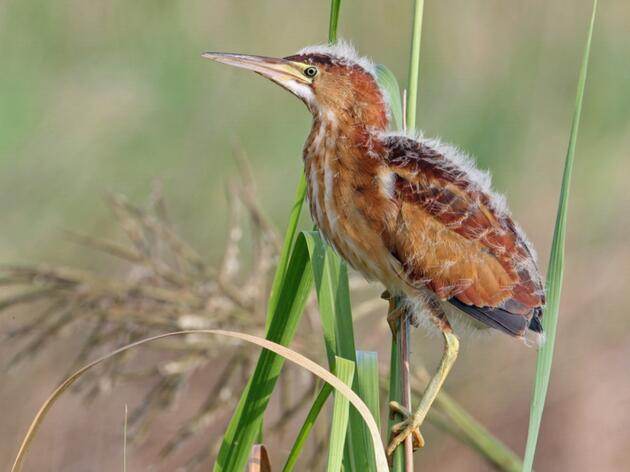Protecting Birds in the Calumet Region
The Calumet region, which encompasses the southern shore of Lake Michigan, and spans across Illinois, Indiana and Michigan, has a long history of industry and an even longer history of rich biodiversity. Once cosisting of nearly 45,000 acres of marsh and wet prairie, breeding marsh bird populations were decimated as wetlands were lost to factories and industry. Now, Audubon Great Lakes is working to restore the critical wetland habitat birds need to thrive, for the benefit of wildlife and local communities.
Working in the Areas Where Birds Need Us Most
The Calumet region has been identified by Audubon scientists as one of the 12 most important coastal wetland regions across the Great Lakes that are most important to conserve or restore for vulnerable marsh birds. Audubon Great Lakes is working with partners in each of these priority regions to coordinate landscape-scale bird monitoring and habitat restoration.
Explore Audubon’s Vision: Restoring the Great Lakes for Birds and People to see Audubon's plans to address the biggest threats facing birds and people.
Our Restoration Work
To date Audubon Great Lakes has restored over 2,000 acres of critical coastal wetlands in the Calumet region and, through collaborative planning and science delivery, helped guide partners and landowners to restore an additional 4,200 wetland acres.
Thanks to the efforts of Audubon Great Lakes and partners, the 40-year trend of marsh bird population declines are stabilizing, and several species populations are increasing in breeding abundance in newly restored wetlands. Restored Calumet wetlands are also improving water quality and helping communities adapt to intensified precipitation events and rapid fluctuations of Great Lakes’ water levels.
History of the Region
The Calumet Region was once home to thousands of acres of sprawling wetlands that provided rich and abundant habitat for wildlife and plants. As development migrated south and east from Chicago in the last 1800's heavy industry began to dominate the region. Despite this massive land conversion, the patchwork of marshes that remained still continued to support incredible biodiversity. However, from the 1990s to the mid-2010s, further degradation of those wetlands resulted in significant losses of biodiversity.
Breeding marsh bird populations, which provide an excellent indication of environmental quality were decimated. Black Tern and Yellow-headed Blackbird were functionally extirpated (meaning they became locally extinct) from the region after breeding there for centuries. Other bird species, including the Least Bittern, Pied-billed Grebe, and Common Gallinule were on a similar trajectory. These birds depend on a dynamic ecosystem called hemimarsh (a wetland that is roughly equal parts open water and emergent vegetation or plant life) to thrive. Threats facing the region including altered hydrology, climate change and invasive species have caused hemimarsh to all but disappear from the region.
Despite these incredible challenges, the region still serves as a major stopover for migratory birds that depend on the areas remaining wetlands and habitat to rest on their long migration journeys and to nest and breed.
Project Partners & Supporters
Audubon Great Lakes is grateful to project partners and supporters who make our work possible.
Project Partners:
Supporters:
Audubon’s work in Calumet wetlands is supported by the Gaylord and Dorothy Donnelley Foundation, the Great Lakes Commission, the Great Lakes Restoration Initiative, the Little Calumet River Basin Development Commission, National Fish and Wildlife Foundation, U.S. Fish and Wildlife Service, and the Walder Foundation.
Our Projects in the Calumet Region
Marsh Bird Monitoring Hub
New interactive data tool helping inform restoration efforts in the Calumet Region for birds and people.
Restoration of Hatcher Park and Marshalltown Marsh
Audubon Great Lakes works with conservation and community partners to make Gary, Indiana more resilient
Restoring Habitat at Powderhorn Lake Forest Preserve
Connecting two lakes to reestablish more than 100 acres of vital marsh habitat that marsh birds rely on.
Restoring 10 Miles of the Little Calumet River
Wetland restoration projects taking place at four sites along the Little Calumet River in Northwest Indiana.
Wild Indigo Nature Explorations
Building lasting relationships between urban communities of color and their local natural areas.

